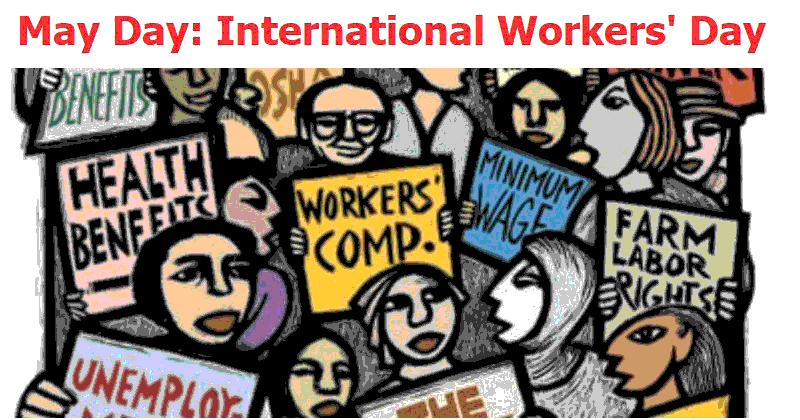
International Workers' Day 2025: Ongoing Demands for Labor Dignity and Social Security
May 1 is recognized globally as International Workers' Day. Nepal and other countries worldwide are marking the 136th International Workers' Day through various programs. Despite the annual observance, which includes demands for minimum wages, social security, career development, and labor respect across formal and informal sectors, Nepal has made limited progress in addressing workers’ concerns.
Historical Background
International Workers' Day originated in 1886, when laborers in Chicago, USA, launched a movement demanding eight hours of work, leisure, and rest. Since the first day of May marks this commemoration, the occasion became known as “May Day.”
In 1889, labor unions and worker leaders from around the world met in Paris, France, and decided to observe May Day as International Workers' Day globally. From 1890 onwards, it has been celebrated worldwide. In Nepal, labor movements began at the Biratnagar Jute Mill in 2003 B.S. After the political change of 2046 B.S., May Day was celebrated as a national event, and the government declared it a public holiday.
Minimum Wage Implementation
As per the Labor Act 2074 and its regulations (2075), the minimum monthly wage for workers was set at NPR 17,300 starting from 1 Shrawan 2080. Wage rates are required to be reviewed every two years, and a new rate is due from this Shrawan. A committee led by a joint secretary at the Ministry of Labor, Employment, and Social Security is currently working on this review.
While employers argue that economic downturns prevent them from increasing wages, trade unions have called for a raise to help workers meet basic living expenses amid rising inflation. Labor Minister Sharatsingh Bhandari stated that the wage review aims to balance the sustainability of businesses and the well-being of workers.
Social Security Program Status
The government launched its social security program on 11 Mangsir 2075, with the slogan "Dignified Life and Secure Future Through Social Security. " The Contribution-Based Social Security Scheme Act 2074, Regulation 2075, and Procedure 2075 are currently in effect.
Although the program is seen as a major achievement of Nepal’s trade union movement, its implementation is slow. Jagat Simkhada, Chairperson of the Joint Trade Union Coordination Center (JTUCC), pointed out that the informal sector, which needs the program the most, has been effectively included, revealing a gap in government action.
He noted that workers in the informal and self-employed sectors are also Nepali citizens. A small percentage of contributions from all three levels of government could help them participate in the program.
Enrollment Status in the Social Security Fund
According to the Social Security Fund, 2,186,521 workers have enrolled in its schemes, which are divided into four categories: formal employment, foreign employment, informal sector, and self-employment. The highest number, 1,606,924, is from foreign employment, mainly because enrollment is mandatory for foreign-bound workers.
However, the rate of continued participation remains low, with a 9% drop in sustained contributions. Although informal and self-employed workers were brought into the program starting last Shrawan, the number of enrollees remains minimal. Only 458 workers from the informal sector and 334 from the self-employed sector have enrolled.
Concerns from Labor Leaders
Janak Chaudhary, Senior Vice President of the General Federation of Nepalese Trade Unions (GEFONT), criticized the government and employers for failing to implement the benefits secured through labor movements.
He said the government's slogan for this year—"Dignified Work, Respect for Workers"—can only be meaningful if informal, self-employed, and contract-based government workers are successfully brought into the social security system.


